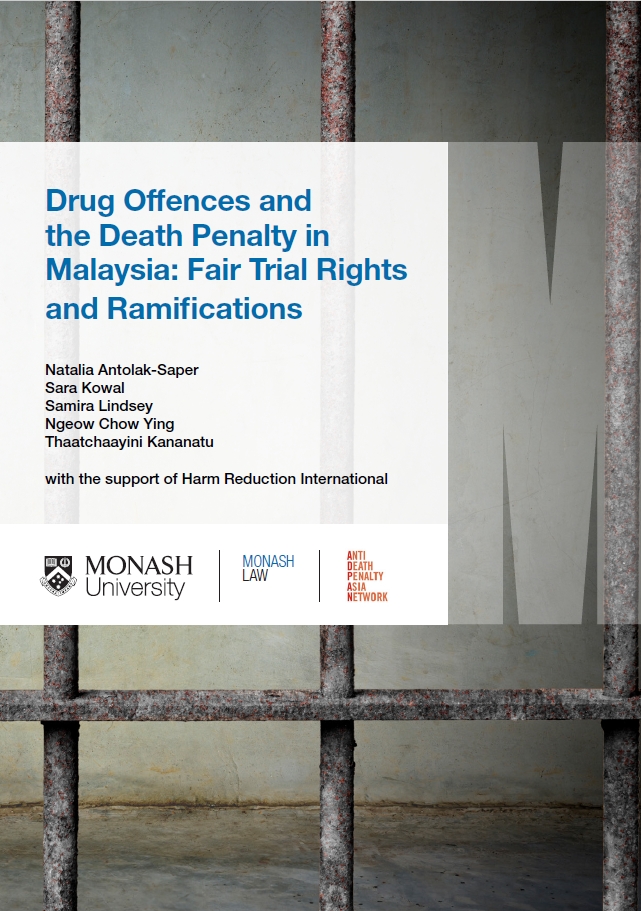Last week saw the launch of an important research report throwing light on the circumstances in which the death penalty is imposed in Malaysia.

The report comes at an important time with Malaysia’s first non Barisan Nasional government since independence in 1957 collapsing after less than two years in government. Prime Minister Mahathir Mohamad had been elected on a platform of revoking the mandatory death penalty and had imposed a moratorium on executions soon after it was elected. The government, before its fall, had reacted to domestic political pressures and retreated from the breadth of its initial promise. The new government is yet to show its hand on the proposed reforms.
The report and the research project on which it is based is a joint project of Monash University Law School and the Anti-Death Penalty Asia Network and was supported financially by Harm Reduction International. The authors are associated with Monash University’s Law School including at Monash University Malaysia. The report was contributed to by the work of student researchers.
In December 2019, 1,280 people were on death row in Malaysia. Two thirds of all people on death row are there for drug offences. Forty-three per cent of people sentenced to death are foreign nationals. A large proportion of people on death row, including most of the foreign nationals, come from disadvantaged socio-economic backgrounds.
The report points out that drug offences do not come within the concept of the most serious offences for which the death penalty is permitted to be imposed by article 6 of the International Covenant on Civil and Political Rights.
The report examines whether Malaysian death penalty trials comply with fair trial guarantees and whether accused persons are provided with the high level of procedural fairness and access to justice that is required under international law. The report analyses the relevant Malaysian legislation and examines the dynamics of the process through cases studies and interviews with Malaysian criminal lawyers.
The report finds severe deficiencies in the system including presumptions of fact in the legislation which reverse the onus of proof, placing it on the accused. Lack of resources including translators, especially, in the investigative process leads to further injustices. The trial system, while it provides interpreters and defence counsel, leaves the defence under resourced through inadequate legal aid payments and the frequent use of inexperienced and unskilled lawyers.
The report is an important contribution to research on the real world injustices associated with capital punishment in Malaysia. It makes important recommendations for change in the system to provide a modicum of fairness. The authors are Natalia Antolak-Saper, Sara Kowal, Samira Lindsey, Ngeow Chow Ting and Thaatchaayini Kanatu.
The report is available to download at this link.
Stephen Keim SC
Higgins Chambers
31 May 2020
